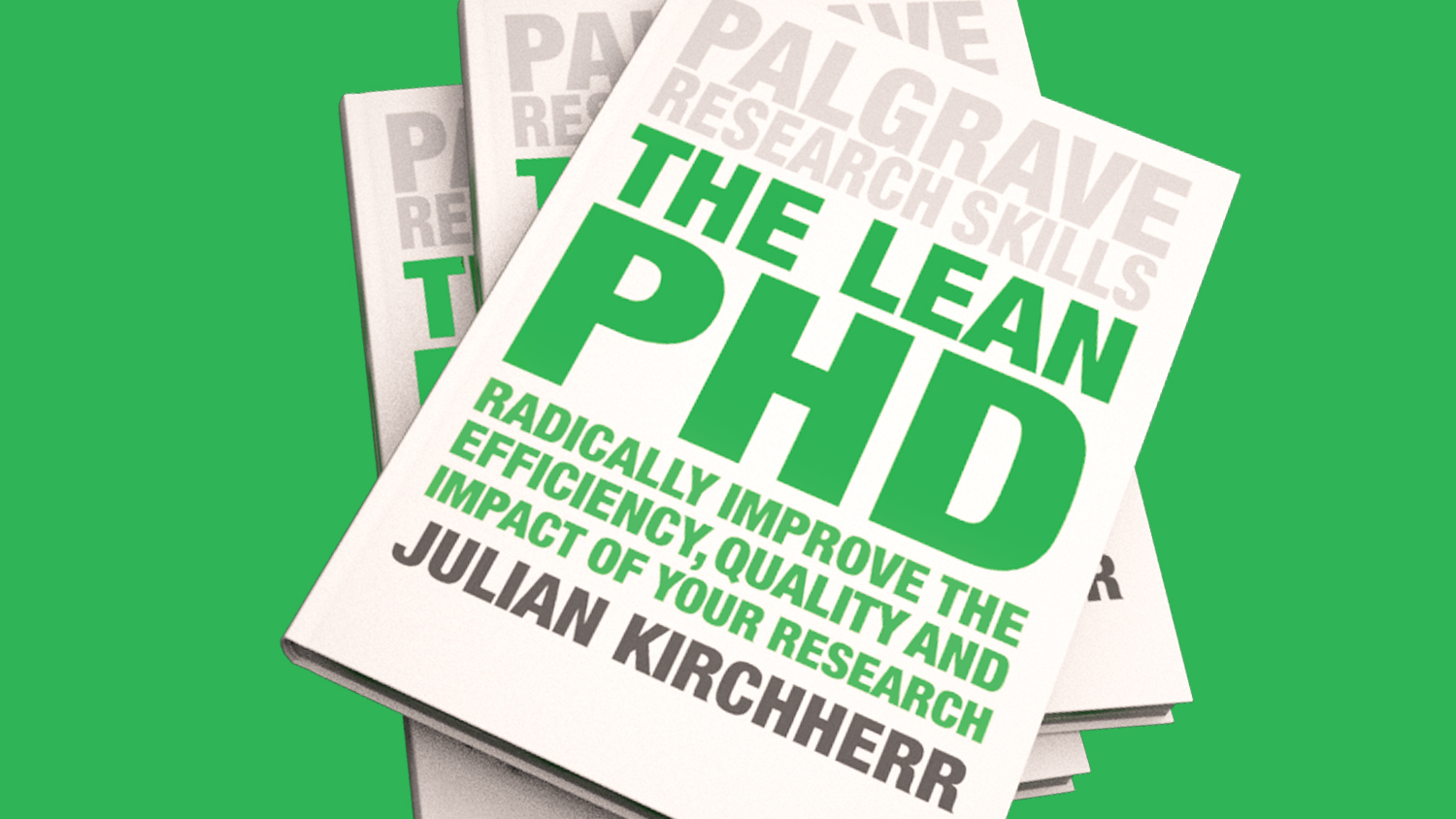Book with PhD tips overlooks the romanticism of the PhD

In the book The Lean PhD Julian Kirchherr, researcher at the UU’s Copernicus Institute, proposes applying concepts of a successful start-up method – The Lean Start-up – to PhD tracks.
An interesting idea, because, as Kirchherr describes in his book, there are quite a few similarities between the two enterprises. It’s an individual process, takes a lot of work, and demands quite a lot of devotion.
Three core points
In three chapters, Kirchherr describes which Lean principles could be applied to the PhD track. He bases his approach on three core points. Minimum Viable product: your output has to be just good enough. Rapid prototyping: develop your research in such a way that you’re constantly asking for feedback on rough drafts. And finally: End-User orientation: always keep your proposed audience in mind.
These three core points are then elaborated upon in a long series of tips. Think about the topic you choose, visit many conferences, gather as much feedback on your work as possible, all advice that’s undoubtedly useful to any PhD candidate. Although visiting 15 conferences, as Kirchherr did during his PhD track, might be pushing it.
Kirchherr also calls for a PhD based on separate papers instead of writing chapters. It would offer the PhD candidate the chance to receive a lot more feedback, and to change direction if necessary. As far as I’m aware, many PhD candidates at the UU are already working with this approach, or separate chapters are published separately, for indeed that same goal of receiving feedback from the scientific community at an earlier stage.
No hotshot as supervisor
Aside from these practical pieces of advice, Kirchherr critically lays bare the things wrong with the current academic system, and how that may benefit a PhD candidate. For example, he offers the advice of not choosing a hotshot professor as supervisor, because they may not have time to give feedback on their PhD’s work. He says it’s better to choose a supervisor who’s in the early stages of his or her career.
Another piece of advice he gives is to write papers in collaboration with other PhD candidates, as all authors are allowed to include the paper in their theses.
Lack of enthusiasm
Of course it’s good to be aware of the inner workings of the academic system, but by focusing on this so explicitly, the book lacks enthusiasm about the PhD track itself. The cold approach of the Lean methodology completely overlooks the romanticism of getting your PhD. Contributing something to the world, the satisfaction of a new research result, or the euphoria of a paper being accepted or a talk going well – they’re not addressed in this book.
All advise and insight is described in the framework of his own PhD which, he says, he completed very successfully. This method of description has he added disadvantage that it seems as though the proof for this method is mostly anecdotal. After all, Kirchherr is the first person using this method. Still, the PhD candidate is promised heartily that his or her PhD track will be more efficient, of higher quality, and have more impact.
Dutch perspective
This book should also come with a footnote for Dutch PhD candidates. A large part of the Lean PhD method will be irrelevant to them. In the Netherlands, after all, being a PhD candidate is a paid job, one you apply for; writing your own proposal and finding your own grants are often not applicable to their situation. Furthermore, Kirchherr tends to be overly gloomy about job perspective after getting your PhD. In the Netherlands, PhDs do quite well in the job market, according to figures published by Statistics Netherlands.
The final chapter ask the question of whether you could apply the Lean method to science as a whole. Are the lessons from the book useful even after obtaining your PhD? The answer remains somewhat ambiguous. Perhaps we’ll see it answered in Kirchherr’s next book.
You can find more information on The Lean PhD by Julian Kirchherr on this website, where you can also, for example, sign up for a PhD Boot Camp.
